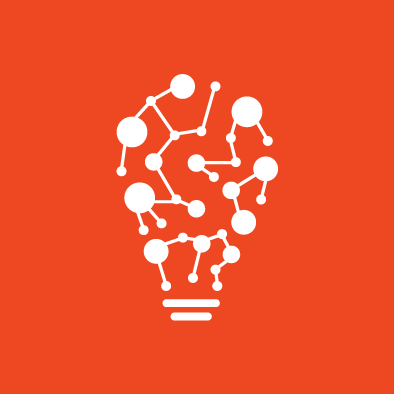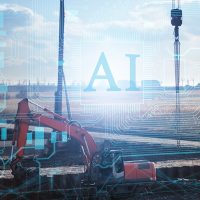
Artificial Intelligence has been one of the fascinating technology trends of the 21st century. Today almost all sectors and industries embrace the benefits of AI technology for a wide range of applications, including business process automation, predictive analysis, enhanced customer experience, increased productivity, reduction in costs, etc.
So if you’re a data scientist, researcher, data engineer, business leader, or just someone who’s interested in this industry, here we’ve picked up a list of some of the best AI, deep learning and machine learning books for beginners and experts.
Best Machine Learning Books
-
Python Machine Learning, by Sebastian Raschka
This is a great machine learning book if you are new to machine learning or want to extend your knowledge in this field. Python Machine Learning is a comprehensive introduction to machine learning packed with clear explanations and working examples. Including the popular TensorFlow deep learning library, the book combines theory with practice covering all the essential machine learning techniques in depth.
-
Hands-on Machine Learning with Scikit-Learn, Keras, and TensorFlow: Concepts, Tools, and Techniques to Build Intelligent Systems, by Aurelien Geron
In Aurelien Geron’s book, you’ll start with machine learning fundamentals, then move on to more advanced applications and algorithms. The book is packed with practical examples using Python frameworks-Scikit-Learn and TensorFlow. In this book, you’ll learn simple linear regression and moving to deep neural networks. The book will also teach you all the techniques and tools you need to build intelligent systems. In addition, the examples and exercises in each chapter will help you apply what you’ve learned.
-
The Hundred-Page Machine Learning Book, by Andriy Burkov
The Hundred-Page Machine Learning Book is perhaps one of the best machine learning books. It serves as a great introduction to all major machine learning concepts, ranging from supervised and unsupervised learning, deep learning, neural networks, support vector machines, classical linear and logistic regression, etc. The book also illustrates some of the algorithms using Python coding language. The Hundred-Page Machine Learning Book is recommended both for beginners and experienced practitioners looking to enhance their knowledge base.
-
Pattern Recognition and Machine Learning, by Christopher M. Bishop
The book explores the basic concepts of machine learning and pattern recognition to present the Bayesian viewpoint. In this book, you’ll learn statistical pattern recognition techniques and get familiar with graphical models and inference methods for describing probability distributions. Knowledge of basic linear algebra and multivariate calculus is needed for going through the book.
-
The Elements of Statistical Learning: Data Mining, Inference, and Prediction, by Trevor Hastie, Robert Tibshirani, Jerome Friedman
This is a valuable resource taking you deep into data mining and statistical pattern recognition. The book uses many special cases and real data examples, explaining clearly the relationship between methods. It includes both statistical approaches and modern tools for data analysis necessary for the practical implementation of the methods.
3 Best Deep Learning Books

-
Deep Learning with Python, by François Chollet
Deep Learning with Python is a comprehensive guide to deep learning with the use of Python and the Keras library. You’ll explore many practical examples and intuitive explanations on each new concept with applications in computer vision, generative models, and natural-language processing. In addition, this deep learning book will help you develop the skills you need to use Keras and gain the knowledge to apply deep learning in real-world projects.
-
Deep Learning, by Ian Goodfellow, Yoshua Bengio, Aaron Courville
The deep learning book is structured around theory and mathematics to help you fully understand the fundamentals of deep learning. The book features a wide range of deep learning topics, like calculus, linear algebra, signal processing, etc. You’ll learn deep learning techniques, including fast-forward neural networks, sequence modeling, regularization and optimization algorithms, and practical methodology.
-
Deep Reinforcement Learning Hands-On, by Maxim Lapan
If you are looking for a complete introduction to the basics of deep reinforcement learning, this deep learning book might be a good book start. The book aims to get readers familiar with the latest deep learning tools and techniques. You’ll also discover how to implement Q-learning and code intelligent learning agents to take on a range of practical tasks, e.g., play Connect 4, buy and trade stocks, etc.
AI Books That Every Data Scientist Should Read
-
Mathematical Methods in the Physical Sciences, by Mary L. Boas
The book can be recommended as a basic source of study of mathematical physics. It combines essential math concepts and analytical techniques to help gain skills in mathematical problem-solving. The main purpose of Mathematical Methods in the Physical Sciences is also to help develop basic competence in many areas of mathematics. The book mainly focuses on mathematical methods and describes how to use these methods in combination with some simple applications.
-
Introduction to the Design and Analysis of Algorithms, by Anany V. Levitin
Design and Analysis of Algorithms is the most basic introduction to the concept of algorithms. This is a great introductory algorithms guide to algorithm design techniques, the taxonomy of various algorithms through the topics of computability and complexity. The algorithms book is presented in an innovative manner and combines popular puzzles and computing problems to help students enhance their skills in algorithmic problem-solving.
-
Pro Deep Learning with TensorFlow, by Santanu Pattanayak
With this book, you’ll get a profound understanding of deep learning solutions using TensorFlow. The book will help you gain a solid mathematical understanding and scientific knowledge to do research in this field. You’ll also be able to create and optimize different deep learning architectures and deploy complex deep learning solutions and experiments using TensorFlow. Pro Deep Learning with TensorFlow dives into the most relevant practical aspects of deep learning, allowing you to get hands-on experience and practice in deep learning.
-
Learning Python, by Mark Lutz
Mark Lutz’s popular book covers all the fundamentals of the Python language. This is one of the best practice resources to teach you the main concepts of Python programming. It’s a great tutorial accompanied by practical exercises, illustrations, and quizzes to ensure that each concept is easy to follow.
We’ve summed up some of the best books to help get your skills leveled up and advance further in this field. In addition to reading books, you can also expand your AI, machine learning, and deep learning knowledge through our online learning resources that you can enjoy free of charge!
By Siranush Andriasyan

SmartClick is a full-service software provider delivering artificial intelligence & machine learning solutions for businesses.


